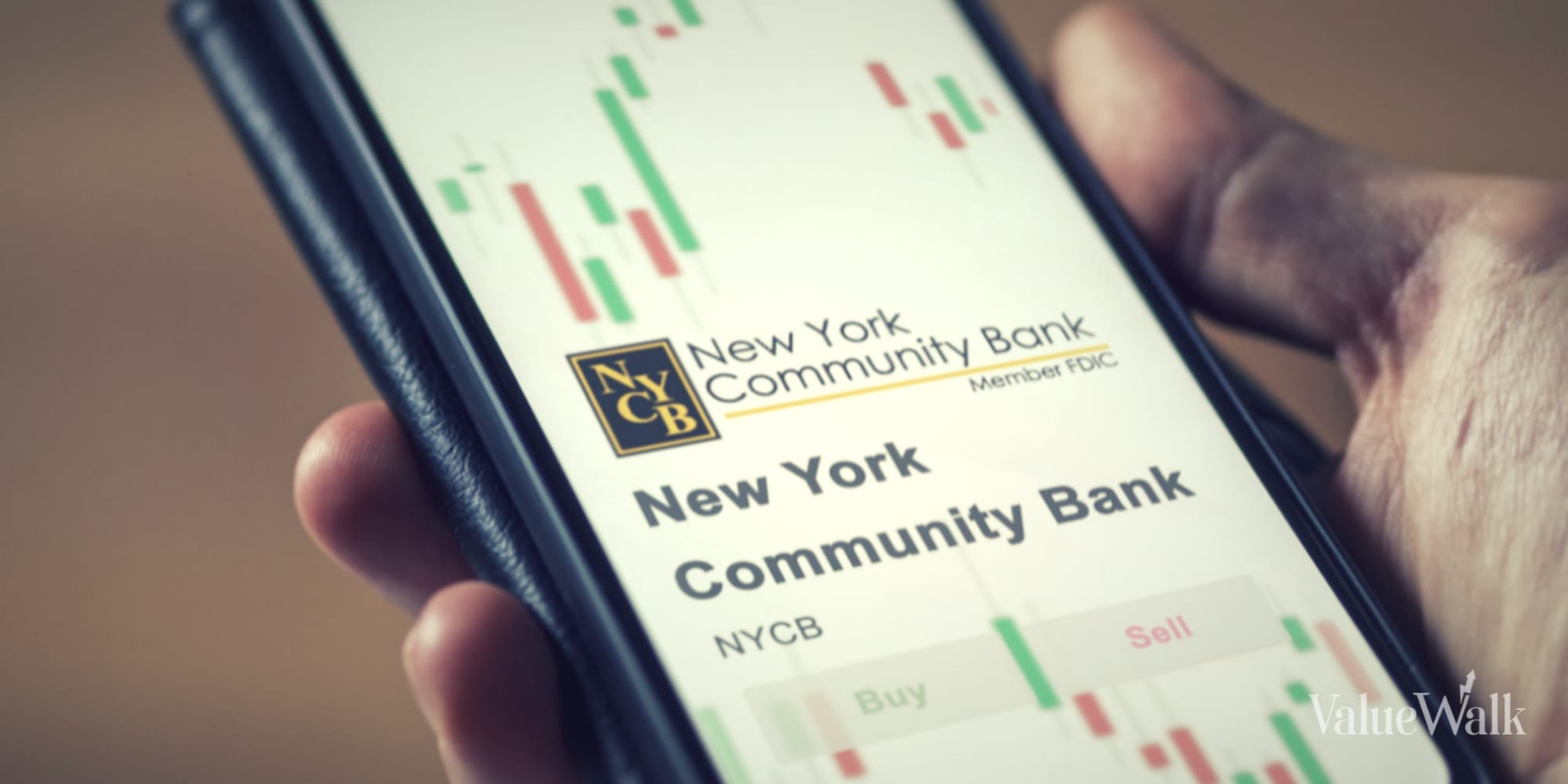Latest Twist in NYCB Saga Sees $1B Capital Infusion, New CEO

Roughly one year ago, regional banks were the big story on the markets, as high interest rates and a run on deposits set off a chain of events that led to three major banks going under and many others taking major hits.
One of the tangential players in last year’s banking meltdown, New York Community Bancorp (NYSE:NYCB), is the focus of the drama this year. On Thursday, the embattled bank, which had plummeted into penny stock territory, shared some good news: a $1 billion investment from a group led by former Treasury Secretary Steve Mnuchin.
The bank’s stock price more than doubled from about $1.75 per share on Wednesday afternoon to around $3.73 per share as of Thursday afternoon. Let’s take a look at the latest twist in a crazy month for this bank.
Too big, too fast
New York Community Bancorp was actually a beneficiary of last year’s banking crisis as it acquired $38 billion in assets from the failed Signature Bank via the Federal Deposit Insurance Corp., which had taken over the bank. Through its subsidiary Flagstar Bank, New York Community Bank brought in about $13 billion in loans and $34 billion in deposits from the former Signature Bank.
The bank’s stock price doubled to almost $14 per share in the following months, making it one of the few bank stocks that outperformed the markets last year.
However, with the Signature assets came problems that started to come to light earlier this year. New York Community Bank’s fourth-quarter earnings showed a $260 million net loss, versus a $199 million net profit the previous quarter. In addition, the bank slashed its dividend to 5 cents a share from 17 cents. That led to a major selloff that saw the stock price drop from over $10 per share to below $5 per share in early February.
That led to some customers pulling their deposits, according to CNN. Between Feb. 5 and March 5, the firm saw its deposit base decrease by $6 billion to $77 billion, the news outlet added.
As then-CEO Thomas Cangemi explained, just five weeks ago, New York Community Bank grew too big too fast. Not only had it acquired the assets of Signature Bank last year; it also bought Flagstar Bank in December 2022.
Those two acquisitions put NYCB over $100 billion in total assets. As a result, New York Community Bank shifted into large-bank territory, subjecting it to enhanced prudential standards, including risk-based and leverage capital requirements, liquidity standards, risk management requirements, and stress testing.
“While we began preparing to be a $100 billion bank almost immediately after closing the Flagstar acquisition, we crossed this important threshold sooner than anticipated as a result of the Signature transaction,” Cangemi said in the Q4 earnings report. “Alongside the integration of our three banks and in anticipation of our initial capital plan submission in April of this year, we have pivoted quickly and accelerated some necessary enhancements that come with being a $100 billion-plus Category IV bank.”
From bad to worse
Things got worse from there as the firm amended its earnings in an 8-K SEC filing on Feb. 29. The filing showed an actual $2.7 billion net loss in Q4 due to a previously undisclosed $2.4 billion goodwill impairment, which stemmed from a pre-2007 transaction that became fully impaired at the end of 2023.
In that same filing, New York Community Bank acknowledged some troubling developments regarding its internal controls. The filing said “management identified material weaknesses in the company’s internal controls related to internal loan review, resulting from ineffective oversight, risk assessment and monitoring activities.” It added that its “disclosure controls and procedures and internal control over financial reporting were not effective as of December 31, 2023.”
That same day, the company issued a press release stating that Cangemi had resigned as president and CEO after 27 years, and executive chairman of the board Alessandro DiNello was appointed to replace him. DiNello had been the CEO of Flagstar Bank and has served on the NYCB board since Flagstar was acquired in late 2022.
However, not everyone was thrilled with his appointment as CEO, as my colleague David Moadel wrote earlier this week. Board member Hanif Dahya wrote a letter saying he did not support the appointment of DiNello. Subsequently, Dahya stepped down from his post as a director. A few days later, there was another change at the top.
Mnuchin to the rescue?
This long, strange trip took another turn on Thursday when New York Community Bank announced that it had hired a new CEO to replace DiNello: Thomas Otting. After his short management tenure, DiNello was moved back to the board. Otting served as U.S. comptroller of the currency during the Trump Administration.
Another Trump official, former U.S. Treasury Secretary Steve Mnuchin, is also playing a big role in trying to fix NYCB. Mnuchin, founder of Liberty Strategic Capital, is one of three major private-equity firms that are investing about $1 billion in New York Community Bancorp to provide it with the capital it needs to meet regulatory requirements. Mnuchin’s Liberty Strategic Capital is investing $450 million, while Hudson Bay Capital Management will invest $250 million, and Reverence Capital Partners will invest $200 million. The rest is coming from other institutional investors.
“With the over $1 billion of capital invested in the bank, we believe we now have sufficient capital should reserves need to be increased in the future to be consistent with or above the coverage ratio of NYCB’s large bank peers,” Mnuchin said. “We decided to make this investment because we believe Sandro, alongside new management, has taken the appropriate actions to stabilize the company and to position NYCB to become a best-in-class $100+ billion national bank with a diversified and de-risked business model that supports long term profitability.”
Mnuchin, along with Otting, Milton Berlinski from Reverence Capital, and Allen Puwalski, were also appointed to the board.
There is a lot to unpack here, but the investment certainly threw the floundering bank a lifeline, at least for the time being. There are still a lot of problems to work through, plans to execute on, and big questions to answer. It is probably not a stock to consider right now given the uncertainty, despite its dirt-cheap valuation.

Comments are closed.